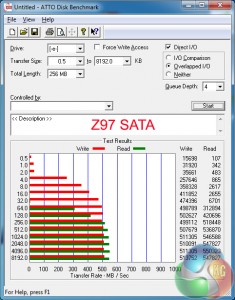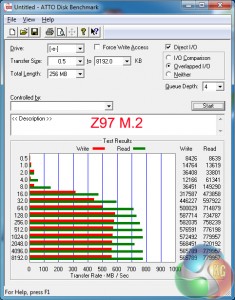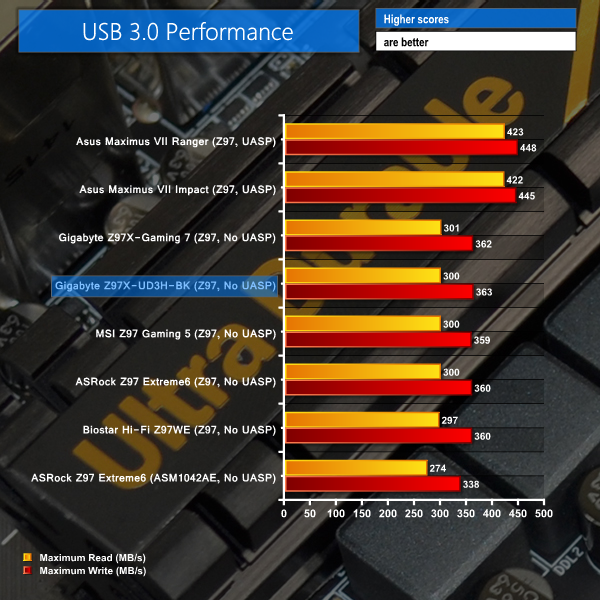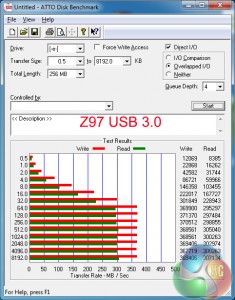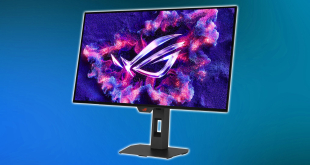SATA
For SATA 6Gb/s testing we use a Kingston HyperX 3K (SandForce SF-2281) SSD.
SATA performance is where we would expect it to be for a Z97 motherboard. There shouldn't be any bottleneck worries when using a modern SATA 6Gbps SSD.
M.2 connector
We use Plextor‘s fast M6e 256GB M.2 SSD to test the speed of a motherboard's M.2 connector. We reviewed the 512GB Plextor M6e (and its PCIe x2 adapter card) HERE.
Gigabyte's 10Gbps M.2 connection has no problem providing ample bandwidth to the PCIe 2.0 x2 Plextor M6e SSD.
A faster – PCIe 2.0 x4 – SSD will, however, be limited by the 10Gbps connection, although this is a know trade-off with Z97's limited PCIe expansion.
USB 3.0
We tested USB 3.0 performance using the Kingston HyperX 3K SSD connected to a SATA 6Gb/s to USB 3.0 adapter powered by an ASMedia ASM1053 controller.
Gigabyte's Z97X-UD3H-BK posts the joint-best USB 3.0 transfer rates for any motherboard without a Windows 7 UASP-activating tool. That said, the performance lead over competing solutions is practically unnoticeable.
Audio
We use RightMark Audio Analyzer (RMAA) to analyse the performance of the motherboard’s onboard audio solution. A sampling mode of 24-bit, 192 kHz was tested.
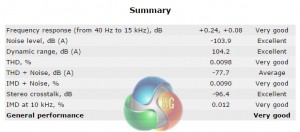
The Z97X-UD3H-BK motherboard's audio system consists of a Realtek ALC1150 codec and Texas Instruments NE5532 rear audio amplifier. Specific capacitors are used to filter the electronic signal, although Gigabyte uses very little in the way of EMI protection.
According to RMAA, the Gigabyte Z97X-UD3H-BK motherboard's audio system offers Very Good general performance. The strong Realtek ALC1150 codec and TI NE5532 amp can be thanked for the performance, and the lack of EMI shielding is not highlighted as a noticeable quality hindrance.
 KitGuru KitGuru.net – Tech News | Hardware News | Hardware Reviews | IOS | Mobile | Gaming | Graphics Cards
KitGuru KitGuru.net – Tech News | Hardware News | Hardware Reviews | IOS | Mobile | Gaming | Graphics Cards


